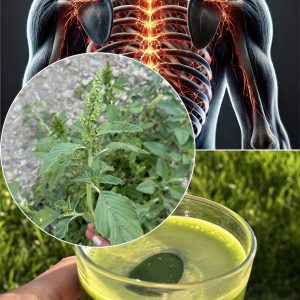Eggplants, also known as aubergines, are a staple in global cuisines, celebrated for their versatility and deep, rich flavors. However, the name “eggplant” carries a curious history that traces back to its early varieties and the regions where it first grew. Here’s a closer look at how eggplants earned their unique name and their journey from ancient gardens to modern kitchens.
Origins of the Name
Early Varieties Resemble Eggs
The term “eggplant” was first used in Europe in the early 18th century and is derived from the varieties that were cultivated at the time. These early types of eggplants were smaller, round, and white, bearing a striking resemblance to hen’s eggs, which led to the name “eggplant.”
Linguistic Journey
In British English, the word evolved from the older name “aubergine,” borrowed from the French word which, in turn, originates from the Catalan “albergínia” and Arabic “al-bāḏinjān.” The American English “eggplant” reflects the vegetable’s appearance rather than its deeper botanical roots.
Eggplant in Cultivation
From Ancient to Modern
Eggplants are believed to have originated in India, where they are still found growing wild. Historical texts suggest that eggplants were cultivated in the region as early as the 5th century B.C. They were introduced to Africa before the Middle Ages and then to Italy in the 14th century, gradually spreading across Europe and the New World.
Evolution of the Fruit
Over centuries, selective cultivation has led to the diverse varieties of eggplants we see today, ranging from the bulbous, glossy purple types common in Western supermarkets to the slender, elongated varieties popular in Asian cuisines. Learn more about growing eggplants effectively by exploring these 7 Essential Tips for Growing Eggplants.
Cultural Significance
Symbolism and Folklore
In many cultures, eggplants have been surrounded by superstition. For example, they were once believed to cause insanity and were called “mad apples” in certain areas of Europe.
Culinary Uses
Beyond its name, eggplants have made their mark in the culinary world. From Middle Eastern baba ganoush to Italian eggplant Parmesan and Indian baingan bharta, eggplants are celebrated for their ability to absorb flavors and add texture to dishes. To ensure healthy growth and avoid common mistakes, check out these 7 Plants to Avoid Near Your Eggplants.
Modern Appreciation
Health Benefits
Today, eggplants are appreciated not just for their versatility in cooking but also for their nutritional benefits. They are a good source of dietary fiber, vitamins B1 and B6, and potassium. They also contain important phytonutrients with antioxidant properties.
Breeding and Sustainability
Agricultural scientists continue to develop new varieties of eggplants that are more resistant to pests and diseases, require fewer resources, and have greater nutritional value, ensuring that eggplants continue to be a sustainable and valuable crop for future generations. Discover 7 Secrets to Mastering the Art of Growing Eggplants for a successful harvest.
The eggplant’s name might seem odd at first glance, but it reflects a rich history of agricultural evolution and cultural exchange. From its mysterious origins in ancient gardens to its status as a culinary chameleon, the eggplant has proven to be as fascinating as it is delicious. It’s a plant that carries not just food but also stories across centuries and continents.





